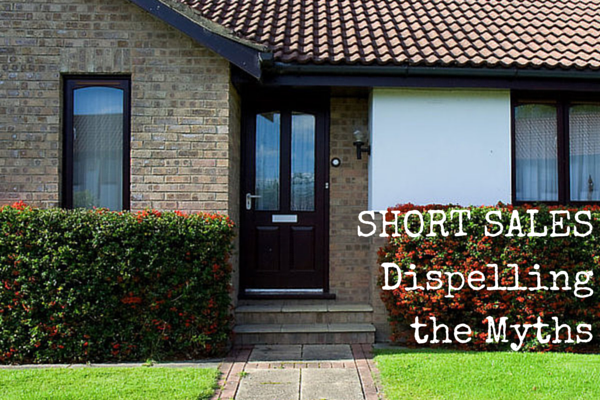Evidently the term short sale isn’t new to everyone particularly to potential home buyers who are scouting for a good deal. As being defined by the realtors, short sale is a transaction in which a lender wholly agrees to accept less than the total value of mortgage owed by the homeowner to avoid foreclosure. Hence, this isn’t a new practice at all. In fact, banks have been legally doing short sales for years.
Before jumping to the crucial steps, one must first be eligible to qualify for a short sale.
To qualify for a short sale, the homeowner must prove that he/she’s undergoing financial hardship. There may be a decrease in wages, divorce, job loss or a hardship due to a medical condition that altered the ability to earn.
- If I scout a property in short sale, I will get a great deal
A large number of buyers have misconceptions with the idea of scouting for a short sale. They may be able to score a deal for a significantly less than the published market value. This is definitely a myth. Moreover, a short sale could turn out to be a long-drawn process that may end with buyers not pursuing with the transaction.
Addressing the supposed value, once a seller accepts an offer, it is submitted to the bank for review. Once the bank has received the offer, they will do their own appraisal of the property known as a Brokers Price Opinion (BPO). BPOs are conducted by real estate agents that are hired by the banks but aren’t affiliated with the property.
Banks may request that multiple BPOs be completed to discern the correct value of the property. If the presented offer is more than a few percent (usually 5%) different in price, the bank would most likely reject the offer. Banks may not consider that the value may lessen after a foreclosure.
The basis to pursue a short sale is if your desire to own the home is for reasons in addition to a possible discounted price.
- There are no other options to repudiate foreclosure.
This is certainly a myth. There are a wide-array of options to repudiate foreclosure. Aside from short sale, loan adjustments/modifications along with deed in lieu are other examples of viable options. In some cases, short sale is the best option. - I must be outdated with my mortgage payments to qualify for a short sale.
You aren’t obliged to be in arrears with your mortgage payments to qualify for a short sale. You just have to prove that you’re having a difficulty in complying with your monthly payments. Some hardship reasons could be recent pay cuts, divorce, serious illness or unemployment. - Short sales take over a year to close.
Most short sales can be closed within 2-4 months though there’s no specific guaranteed time frame guarantee to homeowners that expect that their property agreed and closed as a short sale. Each transaction varies and could consume time depending on the given circumstances. - Short sales aren’t common.
Currently, short sales range from 10 – 50 percent of sales in disparate markets and it’s anticipated that in the coming years, we’ll have more short sale transactions. Due to financial changes in the previous years, this is certainly affecting a large amount of Americans.
In every market, there are short sale transactions present and these aren’t limited to a particular income class. Everyone is affected, from all facets of life. A short sale should be seen as a helpful tool and not an option with a negative stigma.
- A short Sale will cost me a fortune.
This is absolutely false. A short sale shouldn’t cost you any additional monies out of pocket. Conversely, a short sale may leave you in a better financial position. Currently, almost every short sale program has various financial incentives for the home owner, providing the home is the principle residence.
Property sellers should never pay for any costs up front, for assistance with a short sale. Usually realtors charge a commission rate, which is paid by the bank. There are non-profit agencies and HUD counselors who may be of help when discussing the options to prevent foreclosure.
- If I went through a short sale before, I can’t purchase another house for a long period of time.
This statement is not necessarily true since the time period to buy another house depends entirely on credit score and may vary from 2 – 3 years. There are few existing FHA programs that allow a purchase sooner than the given timeframe though these guidelines are strict.
Some banks would approve finance approximately 16 – 18 months after a short sale. You should expect that the interest rate may be high as it is usually based on their specific rules and regulations.
These are some of the typical myths foretold surrounding short sales and foreclosure. With the numerous options available nowadays, no homeowner or seller should experience and go through foreclosure. Hopefully more people reconsider before turning their backs on their property without realizing the long term effects a foreclosure can have.
________________________________
Do you have general real estate requests or need a Realtor to represent you in South Lyon, Novi, Farmington Hills, Livonia, Northville, Plymouth, or in any other surrounding Oakland County area? Feel free to contact me.

